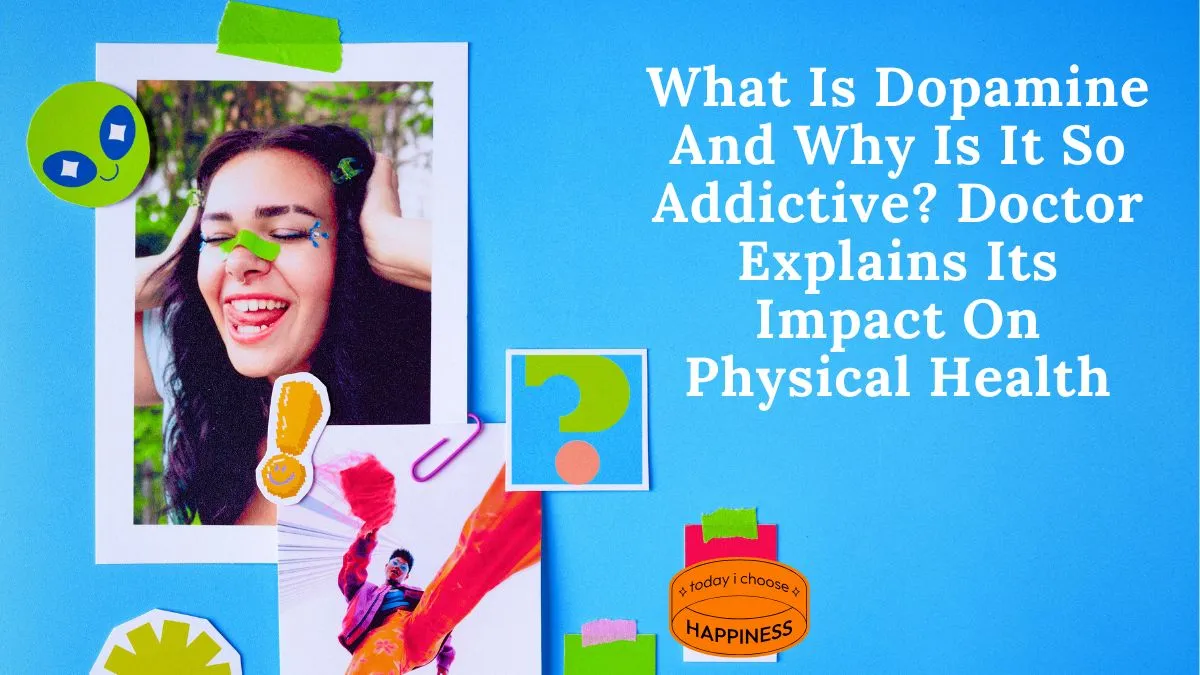- By Priyanka Munshi
- Tue, 04 Feb 2025 05:15 PM (IST)
- Source:JND
In today’s fast-paced world of instant gratification, the urge for a quick dopamine boost has become increasingly common. From the addictive pull of social media notifications to the temptation of junk food and substance use, many people unknowingly chase instant pleasure. While these "dopamine kicks" may feel good momentarily, they often come at the expense of long-term health, leading to various physical and mental health consequences. In a conversation with Jagran English, Dr. Vikram Aglave, a Neuro Physician at Ruby Hall Clinic in Hinjawadi, sheds light on how the constant pursuit of dopamine can impact overall well-being and health risks.
Understanding The Dopamine Drive
1. What Is Dopamine And Why Is It So Addictive?
Dopamine is a neurotransmitter, often called the "feel-good" chemical, responsible for regulating mood, motivation, and reward. When we engage in activities that bring pleasure—whether it's a spa treatment, receiving a compliment, watching a thrilling movie, or eating our favorite food—dopamine is released, creating a feeling of euphoria.
This reward system encourages us to repeat pleasurable behaviors. However, when we consistently chase quick dopamine hits, we can become reliant on these instant fixes to feel good, leading to unhealthy habits.
2. The Impact Of Dopamine-Driven Habits On Physical Health
Frequent dopamine-driven behaviors can have serious physical consequences, including:
- Unhealthy Eating Habits: Fast food, sugary snacks, and processed foods trigger large dopamine releases, making them highly addictive. However, these foods increase the risk of obesity, diabetes, and heart disease, creating a cycle of dependency and long-term health issues.
- Substance Abuse: Alcohol, nicotine, and recreational drugs hijack the brain’s reward system, flooding it with dopamine and creating an intense sense of pleasure. Over time, tolerance builds, requiring larger amounts to achieve the same high, leading to addiction, liver damage, lung disease, heart problems, and neurological issues.
- Sleep Disturbances: Excessive screen time, especially social media and video games, overstimulates dopamine production and disrupts the body’s natural sleep cycle, leading to insomnia and poor sleep quality.
3. The Psychological Effects Of Dopamine Addiction
Over time, chronic dependence on quick dopamine rewards can result in various psychological issues, such as:
- Anxiety And Stress: The endless pursuit of pleasure creates a constant state of anticipation, which can increase stress and anxiety when the next dopamine "hit" is delayed.
- Addiction And Dependency: The brain becomes addicted to dopamine surges, making it difficult to break free from compulsive behaviors, leading to dependency and loss of control.
- Reduced Motivation And Pleasure: Dopamine overstimulation can make the brain less sensitive to pleasure, causing anhedonia—a condition where individuals struggle to find joy in everyday activities, often leading to depression.
- Cognitive Impairment: Excessive dopamine stimulation, especially from drugs or unhealthy lifestyle habits, can lead to memory problems, difficulty focusing, and poor decision-making.
4. Breaking The Cycle: How To Focus On Long-Term Health
Overcoming reliance on instant dopamine fixes is challenging but entirely possible. By adopting healthier habits, individuals can regain control over their mental and physical well-being. Here are some effective strategies:
- Conscious Consumption: Engage in activities that promote long-term well-being, such as mindful eating, regular exercise, and hobbies. These provide lasting fulfillment rather than fleeting pleasure.
- Set Boundaries With Technology: Reduce screen time, especially before bed, to regulate dopamine levels. Implementing a "digital detox" or designating screen-free hours can minimise dependence on constant virtual rewards.
- Exercise Regularly: Physical activity, such as walking, yoga, or cycling, naturally boosts dopamine levels, improving mood and overall health without harmful side effects.
- Practice Gratitude And Delayed Gratification: Shift focus from instant rewards to long-term achievements. Practicing gratitude for small, meaningful moments reduces the urge for instant pleasure and fosters greater happiness and satisfaction.
Final Thoughts of Dr. Vikram Aglave in which he emphasises that while instant dopamine fixes may provide temporary satisfaction, they can be detrimental to long-term health. By understanding the impact of dopamine-driven behaviors and adopting healthier alternatives, individuals can cultivate lasting happiness and well-being. Instead of constantly chasing the next dopamine rush, it’s far more rewarding to embrace meaningful pursuits that nourish the mind, body, and soul.

